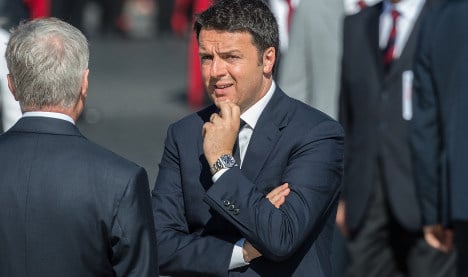The 41-year-old has staked his leadership on winning the crucial referendum, which will be held before the end of the year.
The reforms are intended to enable laws to be passed more quickly, abolish the lavishly financed Senate and bring about a more stable and robust government.
But critics have argued that the overhaul would grant excessive powers to the government.
Asked during an interview at an outdoor festival in Tuscany on Sunday whether elections would take place in 2018 regardless of the vote’s outcome, Renzi said “yes”.
He also said he would keep to his word of stepping down if he loses, despite earlier admitting that it had been a mistake to personalise the referendum.
Polls indicate that the outcome of the referendum is too close to call.
In a report last month the political risk consultancy firm, Eurasia Group, said the referendum had a 60 percent probability of passing, but added that the polls have narrowed sharply since April.
Read more: Why discontented Italians could derail their economy



 Please whitelist us to continue reading.
Please whitelist us to continue reading.
Member comments